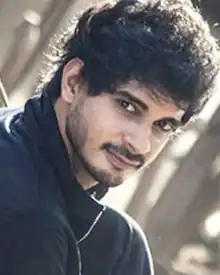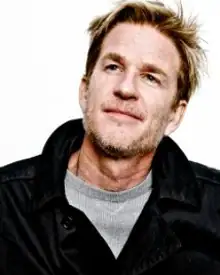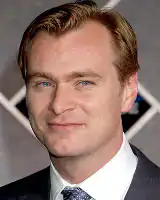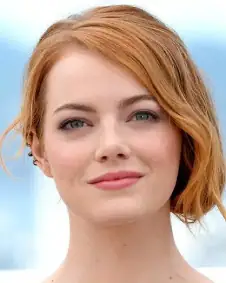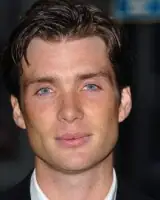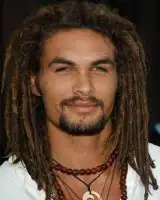X
Crispin Glover
Actor
Crispin Glover Biography
Crispin Hellion Glover born in April 20, 1964 is an American film actor, director and screenwriter, recording artist, publisher and author. Glover is known for portraying eccentric people on screen such as George McFly in Back to the Future, Layne in River's Edge, unfriendly recluse Rubin Farr in Rubin and Ed, the "Creepy Thin Man" in the big screen adaptation of Charlie's Angels and its sequel, Willard Stiles in the Willard remake, The Knave of Hearts in Alice in Wonderland, and as Phil in Hot Tub Time Machine.
In the late 1980s Glover started his company, Volcanic Eruptions, which issues his books and also serves as the production company of Glover's films, What Is It? and It is Fine. Everything is Fine! Glover tours with those films and plans to film more at the property he owns in the Czech Republic.
Early life
Glover was born an only child in New York City, and moved to Los Angeles with his family at the age of five. His father is actor Bruce Glover and his mother, Mary Elizabeth Lillian Betty Krachey Bloom (née Koerber), was an actress and dancer who retired upon his birth. He is of Czechoslovak and Caucasian descent. He was named after the Saint Crispin's Day speech from William Shakespeare's play Henry V, which his parents enjoyed. "Hellion", his real middle name, had earlier been used as a false middle name by his father, who did not like his own real middle name, Herbert. As a child, Glover attended The Mirman School for the academically gifted. He then attended both Venice High and Beverly Hills High School and graduated in 1982.
Acting career
Glover began acting professionally at the age of 13. He appeared in several sitcoms as a teenager, including Happy Days and Family Ties. His first film role was in 1983's My Tutor. That led to roles in Teachers (1984) and Friday the 13th: The Final Chapter (1984). He then worked with director Trent Harris on the third chapter of the Beaver Trilogy, entitled The Orkly Kid. In this short film, he portrayed a small town man who organizes a local talent show to showcase his obsession with Olivia Newton-John, much to the embarrassment of the local community. At the climax of the film, Glover does his rendition, in full drag, of Olivia Newton-John's "Please Don't Keep Me Waiting" from her 1979 album Totally Hot.
His breakout role was as George McFly in Robert Zemeckis's Back to the Future, an international box office success following its release in 1985. Glover did not, however, come to an agreement with the producers to appear in the sequels. Zemeckis used some previously filmed footage of Glover from the first movie and inter-spliced new footage of Jeffrey Weissman, who was introduced using prosthetics (including a false chin, nose and cheekbones) and various obfuscating methods (background, sunglasses, rear shot, even upside down) to play the role of George McFly in the sequels. Displeased that the producers had not only put another actor in make-up to make that actor look like him, but also had used footage of him from the first film without his permission and without paying him, Glover then sued the producers (including Steven Spielberg) on the grounds that the producers did not own Glover's likeness. Because of Glover's lawsuit, there are now clauses in The Screen Actors Guild (TV/Film performer labor union) collective bargaining agreements to the effect that producers and actors are not able to do such things.
He has continued to play exceedingly eccentric types, e.g., playing Andy Warhol in Oliver Stone's The Doors in 1991, as well as the title characters in Bartleby (2001) and Willard (2003). He received mainstream attention as the "Thin Man" in the Charlie's Angels films; the character had initially been cast as a speaking role, but Glover, noting that the lines as written were exposition, convinced the producers to eliminate the lines to create a darker image for the character.
Glover was a co-interlocutor with Norm Hill and Werner Herzog for the special feature commentary for the DVD of Werner Herzog's Even Dwarfs Started Small and Fata Morgana.
Glover starred in the 2007 film Beowulf as the monster Grendel, playing the part via performance capture technology. The film was Glover's first collaboration with director Robert Zemeckis since the original Back to the Future film.
Glover plays the voice of 6 in the movie 9 directed by Shane Acker, and produced by Tim Burton and Timur Bekmambetov.
Glover appeared in the 2010 Tim Burton film Alice in Wonderland as the Knave of Hearts, alongside Johnny Depp, Helena Bonham Carter and Anne Hathaway. Glover also appeared in the 2010 film Hot Tub Time Machine.
Late Night appearance
Glover controversially appeared on Late Night with David Letterman on July 28, 1987, to promote the movie River's Edge, in which he starred. Unbeknownst to Letterman and the audience, Glover appeared in character as "Rubin", from a then-unreleased movie Rubin and Ed, wearing platform shoes and a wig. Rather than a conventional interview, Glover staged an Andy Kaufman-like prank. After being goaded by a woman in the audience (who some argue had been planted), Glover became incensed and stated that he "knew that this was gonna happen" and that "the press, they can do things, they can twist things around". After a failed attempt to challenge Letterman to an arm-wrestling match Glover delivered an impromptu karate kick a few feet from Letterman's face while stating, "I'm strong... I can kick!" Letterman then abruptly ended the segment by walking off stage, saying "I'm going to check on the Top 10", and the program cut to commercial.
The subsequent confusion and controversy surrounding his appearance was compounded by the fact that Rubin and Ed was not actually released until 1991; however, the movie had been in development since before Back to the Future — Crispin had actually already devised Rubin's "look" by 1985. Almost no-one, apparently including Letterman, understood what Glover was doing and the interview became the hallmark of the "weird" TV guest.
Glover returned to the Letterman show two years later and participated in a more nearly standard interview, but made it questionable whether he was ever on the show before and used a variety of delay tactics explaining the incident he did say something about it being "An interesting thing." Glover then appeared two years later promoting a record album. When again asked about his first appearance, Glover launched into a long story, mentioning meeting a fellow resembling himself named Rubin, and needing to appear on The Tonight Show with Johnny Carson simultaneous to his appearance with Letterman. Here Letterman cut him off to talk about the album Glover was promoting, as the time allotted for the interview was more than halfway over. Glover has subsequently refused to go into detail about the reasons for his behavior on the show, other than to mention that he's flattered that fans are still speculating on the performance more than 20 years later. Glover has also mentioned that he prefers there to be an "air of mystery" about the appearance.
Music
In 1989, during a hiatus from films, Glover released an album called The Big Problem Does Not Equal the Solution, The Solution Equals Let It Be through Restless Records, produced by Barnes & Barnes (of "Fish Heads" fame). The album features original songs like "Clowny Clown Clown", odd versions of Lee Hazlewood's "These Boots Are Made for Walkin'" and Charles Manson's "I'll Never Say Never to Always" (sung in falsetto), and readings from his art books Rat Catching and Oak Mot (see Books section below). Sample pages from these books are featured in the album's liner notes.
The back cover of the album is a collage of figures relating to each track on the album, with a puzzle: "All words and lyrics point to THE BIG PROBLEM. The solution lay within the title; LET IT BE. Crispin Hellion Glover wants to know what you think these nine things all have in common." He included his home phone number with copies of the album, encouraging listeners to phone when they had "solved" his puzzle. Glover later commented that he was surprised how many people figured it out.
In 2003, he recorded a version of the Michael Jackson song "Ben" to coincide with the release of the film Willard. In the eccentric music video for the song, which is included on the Willard DVD, he sings to a rat named Ben.
A number of songs using Glover's name as the title have been recorded by various artists, including Shoegaze/Gothic Rock band Scarling. and Chicago outsider musician Wesley Willis.
Directorial work
Glover made his directorial debut with 2005's What Is It?, a surreal film featuring a cast of actors with Down's Syndrome. It premiered at the 2005 Sundance Film Festival. The movie, with a budget of only $150,000, took almost a decade to complete and was originally intended to be a short film. Most of the primary footage was shot in 12 days, stretched over a two-and-a-half year period. Production was mostly funded by the actor's roles in Willard and the Charlie's Angels films. Glover's second film, It is Fine. Everything is Fine! was written by Utah writer-actor Steven C. Stewart. Stewart was born with a severe case of cerebral palsy and had been confined to a nursing home for about ten years. The second film is a fantastical psycho-sexual re-telling of life from Stewart's point of view. It premiered at the 2007 Sundance Film Festival. Glover is planning a third film called It is Mine which will end the It? Trilogy.
In the late 1980s Glover started his company, Volcanic Eruptions, which issues his books and also serves as the production company of Glover's films, What Is It? and It is Fine. Everything is Fine! Glover tours with those films and plans to film more at the property he owns in the Czech Republic.
Early life
Glover was born an only child in New York City, and moved to Los Angeles with his family at the age of five. His father is actor Bruce Glover and his mother, Mary Elizabeth Lillian Betty Krachey Bloom (née Koerber), was an actress and dancer who retired upon his birth. He is of Czechoslovak and Caucasian descent. He was named after the Saint Crispin's Day speech from William Shakespeare's play Henry V, which his parents enjoyed. "Hellion", his real middle name, had earlier been used as a false middle name by his father, who did not like his own real middle name, Herbert. As a child, Glover attended The Mirman School for the academically gifted. He then attended both Venice High and Beverly Hills High School and graduated in 1982.
Acting career
Glover began acting professionally at the age of 13. He appeared in several sitcoms as a teenager, including Happy Days and Family Ties. His first film role was in 1983's My Tutor. That led to roles in Teachers (1984) and Friday the 13th: The Final Chapter (1984). He then worked with director Trent Harris on the third chapter of the Beaver Trilogy, entitled The Orkly Kid. In this short film, he portrayed a small town man who organizes a local talent show to showcase his obsession with Olivia Newton-John, much to the embarrassment of the local community. At the climax of the film, Glover does his rendition, in full drag, of Olivia Newton-John's "Please Don't Keep Me Waiting" from her 1979 album Totally Hot.
His breakout role was as George McFly in Robert Zemeckis's Back to the Future, an international box office success following its release in 1985. Glover did not, however, come to an agreement with the producers to appear in the sequels. Zemeckis used some previously filmed footage of Glover from the first movie and inter-spliced new footage of Jeffrey Weissman, who was introduced using prosthetics (including a false chin, nose and cheekbones) and various obfuscating methods (background, sunglasses, rear shot, even upside down) to play the role of George McFly in the sequels. Displeased that the producers had not only put another actor in make-up to make that actor look like him, but also had used footage of him from the first film without his permission and without paying him, Glover then sued the producers (including Steven Spielberg) on the grounds that the producers did not own Glover's likeness. Because of Glover's lawsuit, there are now clauses in The Screen Actors Guild (TV/Film performer labor union) collective bargaining agreements to the effect that producers and actors are not able to do such things.
He has continued to play exceedingly eccentric types, e.g., playing Andy Warhol in Oliver Stone's The Doors in 1991, as well as the title characters in Bartleby (2001) and Willard (2003). He received mainstream attention as the "Thin Man" in the Charlie's Angels films; the character had initially been cast as a speaking role, but Glover, noting that the lines as written were exposition, convinced the producers to eliminate the lines to create a darker image for the character.
Glover was a co-interlocutor with Norm Hill and Werner Herzog for the special feature commentary for the DVD of Werner Herzog's Even Dwarfs Started Small and Fata Morgana.
Glover starred in the 2007 film Beowulf as the monster Grendel, playing the part via performance capture technology. The film was Glover's first collaboration with director Robert Zemeckis since the original Back to the Future film.
Glover plays the voice of 6 in the movie 9 directed by Shane Acker, and produced by Tim Burton and Timur Bekmambetov.
Glover appeared in the 2010 Tim Burton film Alice in Wonderland as the Knave of Hearts, alongside Johnny Depp, Helena Bonham Carter and Anne Hathaway. Glover also appeared in the 2010 film Hot Tub Time Machine.
Late Night appearance
Glover controversially appeared on Late Night with David Letterman on July 28, 1987, to promote the movie River's Edge, in which he starred. Unbeknownst to Letterman and the audience, Glover appeared in character as "Rubin", from a then-unreleased movie Rubin and Ed, wearing platform shoes and a wig. Rather than a conventional interview, Glover staged an Andy Kaufman-like prank. After being goaded by a woman in the audience (who some argue had been planted), Glover became incensed and stated that he "knew that this was gonna happen" and that "the press, they can do things, they can twist things around". After a failed attempt to challenge Letterman to an arm-wrestling match Glover delivered an impromptu karate kick a few feet from Letterman's face while stating, "I'm strong... I can kick!" Letterman then abruptly ended the segment by walking off stage, saying "I'm going to check on the Top 10", and the program cut to commercial.
The subsequent confusion and controversy surrounding his appearance was compounded by the fact that Rubin and Ed was not actually released until 1991; however, the movie had been in development since before Back to the Future — Crispin had actually already devised Rubin's "look" by 1985. Almost no-one, apparently including Letterman, understood what Glover was doing and the interview became the hallmark of the "weird" TV guest.
Glover returned to the Letterman show two years later and participated in a more nearly standard interview, but made it questionable whether he was ever on the show before and used a variety of delay tactics explaining the incident he did say something about it being "An interesting thing." Glover then appeared two years later promoting a record album. When again asked about his first appearance, Glover launched into a long story, mentioning meeting a fellow resembling himself named Rubin, and needing to appear on The Tonight Show with Johnny Carson simultaneous to his appearance with Letterman. Here Letterman cut him off to talk about the album Glover was promoting, as the time allotted for the interview was more than halfway over. Glover has subsequently refused to go into detail about the reasons for his behavior on the show, other than to mention that he's flattered that fans are still speculating on the performance more than 20 years later. Glover has also mentioned that he prefers there to be an "air of mystery" about the appearance.
Music
In 1989, during a hiatus from films, Glover released an album called The Big Problem Does Not Equal the Solution, The Solution Equals Let It Be through Restless Records, produced by Barnes & Barnes (of "Fish Heads" fame). The album features original songs like "Clowny Clown Clown", odd versions of Lee Hazlewood's "These Boots Are Made for Walkin'" and Charles Manson's "I'll Never Say Never to Always" (sung in falsetto), and readings from his art books Rat Catching and Oak Mot (see Books section below). Sample pages from these books are featured in the album's liner notes.
The back cover of the album is a collage of figures relating to each track on the album, with a puzzle: "All words and lyrics point to THE BIG PROBLEM. The solution lay within the title; LET IT BE. Crispin Hellion Glover wants to know what you think these nine things all have in common." He included his home phone number with copies of the album, encouraging listeners to phone when they had "solved" his puzzle. Glover later commented that he was surprised how many people figured it out.
In 2003, he recorded a version of the Michael Jackson song "Ben" to coincide with the release of the film Willard. In the eccentric music video for the song, which is included on the Willard DVD, he sings to a rat named Ben.
A number of songs using Glover's name as the title have been recorded by various artists, including Shoegaze/Gothic Rock band Scarling. and Chicago outsider musician Wesley Willis.
Directorial work
Glover made his directorial debut with 2005's What Is It?, a surreal film featuring a cast of actors with Down's Syndrome. It premiered at the 2005 Sundance Film Festival. The movie, with a budget of only $150,000, took almost a decade to complete and was originally intended to be a short film. Most of the primary footage was shot in 12 days, stretched over a two-and-a-half year period. Production was mostly funded by the actor's roles in Willard and the Charlie's Angels films. Glover's second film, It is Fine. Everything is Fine! was written by Utah writer-actor Steven C. Stewart. Stewart was born with a severe case of cerebral palsy and had been confined to a nursing home for about ten years. The second film is a fantastical psycho-sexual re-telling of life from Stewart's point of view. It premiered at the 2007 Sundance Film Festival. Glover is planning a third film called It is Mine which will end the It? Trilogy.
Celeb Birthdays
-
Vaibhav Reddy Apr 20
-
Anjala Zaveri Apr 20
-
Crispin Glover Apr 20
-
Carmen Electra Apr 20
-
Bindu Panicker Apr 21
-
Subbalakshmi Apr 21
-
Tahir Raj Bhasin Apr 21
Enable




 Click it and Unblock the Notifications
Click it and Unblock the Notifications









